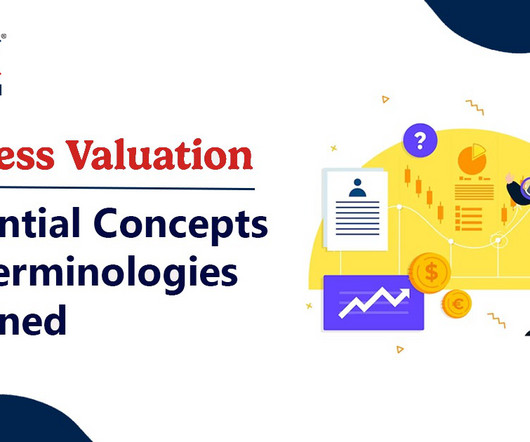Business Valuation 7: Essential Concepts and Terminologies Explained
RNC
JULY 13, 2023
Whether you’re a seasoned investor or a business owner seeking professional guidance, understanding these concepts will empower you to make informed decisions. Market Value: Market value is the estimated worth of a business based on the current market conditions.
















Let's personalize your content